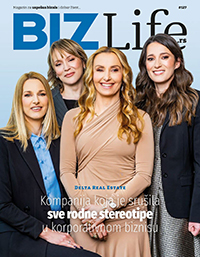
The real flourishing of the payment transactions in Serbia: Nearly fourfold growth in 2021.
Payoneer (NASDAQ: PAYO), the commerce technology company powering payments and growth for the new global economy, announced the results of Serbia in international markets for the 1st quarter of 2021.
The coronavirus pandemic has largely affected business operations via online platforms in Serbia. In the area of e-learning alone, an increase of the volume of transactions rose nearly fourfold in comparison with Q1 2020, and there were 22 times more customers than in 2019, announced Payoneer, a global platform for cross-border payments. An increase was also registered in other sectors, such as IT businesses, e-commerce and photo freelance.
Remote work has become “new normal” and many people have started looking for new work opportunities by developing new specialties and offering their services online. One of the highly successful sectors is e-learning – individuals, professionals, mainly online teachers, who offer and charge for their services via online platforms specialised in online education with the number of customers constantly on the rise and even higher growth of the average revenue per user.
The volume of transactions in the gaming industry has been increased by 80%. The average revenue per user has also significantly increased, showing that the gaming industry is maturing and growing globally. In eCommerce, significant growth registered in 2020 – transactions volume increased by 85% and number of customers increased by 35% and that trend continued even further in Q1 2021. Compared to the previous year, in the field of e-commerce there was a growth by 16% in the volume of transactions, while the number of users increased by 10%. Online vendors have started selling and earning even more – the number of customers is on the rise as well as the average revenue per user.
Q 1 2021 vs Q 1 2020
Citizens of Serbia continued to generate revenue from their homes or offices, cooperating with both global platforms and directly with foreign customers in 2021. In Q1 2021, payments in Serbia rose by 14% compared to the first three months of 2020. The strongest growth was registered for e-learning – of 393% in the volume of transactions and of 312% in the number of customers, with the average volume of payment also rising against Q1 2020.
‘The coronavirus pandemic has impacted the way we operate, creating room for improving online business operations. For the second year in a row, we have seen growth in the number of customers. It is a global trend and I am happy to see Serbia following the same path. We will continue to improve our services in order to provide our users with quick and easy service and help entrepreneurs and businesses from Serbia and the region accelerate their development’ – said Nikola Mehandžić, Business Development Director of Payoneer in Serbia.
In Q1 2021, IT businesses providing services directly to cross-border customers recorded 33% more volume of transactions of customers compared to the previous year. Traditional E–commerce saw volumes grow by 16% and photo freelance by 12%.
Observed per cities in Serbia, Belgrade is the leader in the total volume of transactions executed via this global platform, with a share of 47%, followed by Novi Sad with 17.9%, Niš – 9.3%, Zrenjanin – 5.5%, Kragujevac – 2.4% and Subotica – 2.1%. Compared to the volume of transactions per city in the first three months of 2020, the highest growth was registered for Leskovac – 119%, Zrenjanin – 87%, Kragujevac – 62%, Niš 33%, Novi Sad – 14% and Belgrade – 6%.
Region
Compared to other countries in the region, such as Albania, Bosnia and Herzegovina, Montenegro, Croatia and North Macedonia, Payoneer reported that Serbia is the leader in the volume of transactions and income from abroad, with the total share of 54% in comparison with other countries in the region. It is followed by North Macedonia with 18%, Bosnia and Herzegovina with 13%, Croatia with 8%, Montenegro with 4% and Albania with 4%.
Izvor: BIZLife
Foto: Promo





